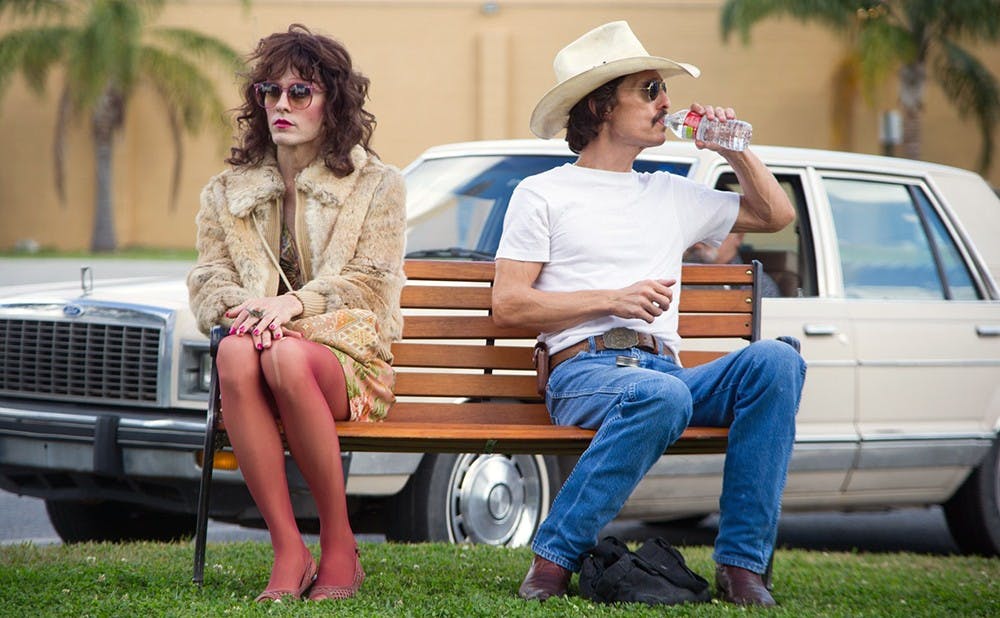4/5 stars
Who would have thought that Matthew McConaughey would star as an oft-shirtless and cowboy hat-clad alcoholic in a new film other than “Magic Mike 2”? “Dallas Buyers Club,” the latest in a string of dramas in which the actor has appeared (“Mud,” “The Lincoln Lawyer”), is set in 1985 – at the advent of HIV and AIDS treatment, in a time when they were extremely stigmatized.
A sinewy McConaughey plays Ron Woodruff, a rodeo guy and electrician established as definitively heterosexual from the opening sequence of the film. He discovers he has AIDS from an attractive lady-doctor (Jennifer Garner) whose lopsided glasses only add to Garner’s perpetually quizzical expression. The movie follows Ron from his initial denial of his diagnosis to his anger at his friends for rejecting him when they discovered the truth, to his eventual acceptance. But Ron is a fighter, a Texan, a real bull-by-the-horns type of guy. Though he accepts his diagnosis, Ron refuses to accept his estimated time left to live: 30 days. He soon finds out that there is a new drug available in clinical trials called AZT. He immediately finds a way to get his hands on some, overdosing with a bottle of pills a day in an attempt to increase his T-cell count. When he ends up in the hospital due to the negative side effects of AZT, he finds out there’s a huge underground market for AIDS and HIV symptom-suppressing drugs. An idea is born.
McConaughey is a powerful actor, and the relationships his character builds with those who surround him are fascinating and complex. Initially overtly homophobic and racist, Ron becomes business partners with and eventually befriends a transgender woman with AIDS named Rayon, played with brilliant vulnerability by Jared Leto. “Dallas Buyers Club” avoids being too heavy-handed in portraying Ron as an accepting character. His interactions with his primarily homosexual customers are strained and uncomfortable at times, but he becomes a part of a community united by a common perspective that transcends sexual orientation.
What began as a money-making scheme for Ron becomes an odyssey to get better drugs approved by the FDA. The film chronicles the mostly-true story of corporate pharmaceuticals and red tape that effectively or literally banned beneficial treatments for the symptoms of HIV and AIDS. While there is decent commentary about the implications of federal restrictions, director Jean-Marc Vallee and writers Craig Borten and Melisa Wallack spoon-feed the audience a ‘these are the bad guys’ message. The avoidance of more than a brief comment about the other side of the story (that medical trials might actually be helpful to learn what works), from one of the ‘bad guys’ no less, seems out of place for a film that plays with perspective so much in its characters.
“Dallas Buyers Club” takes an inherently unlikable, or in the very least unrelatable, character – a drug addict who’s bad to his friends and worse to his enemies, who spends his time trying to figure out how to sleep with as many women as possible – and twists him into a tragically flawed antihero. It’s an impressive feat, and McConaughey’s acting chops do the film a greater service than any other aspect.
Get The Chronicle straight to your inbox
Signup for our weekly newsletter. Cancel at any time.

